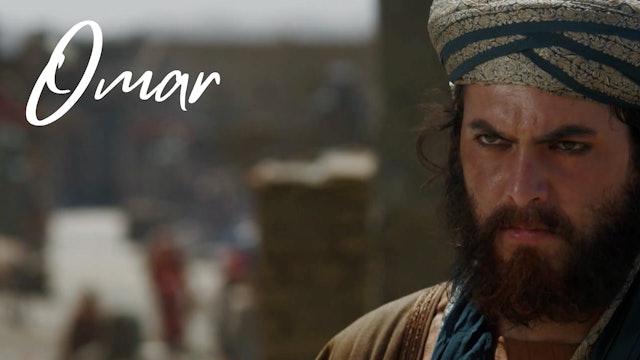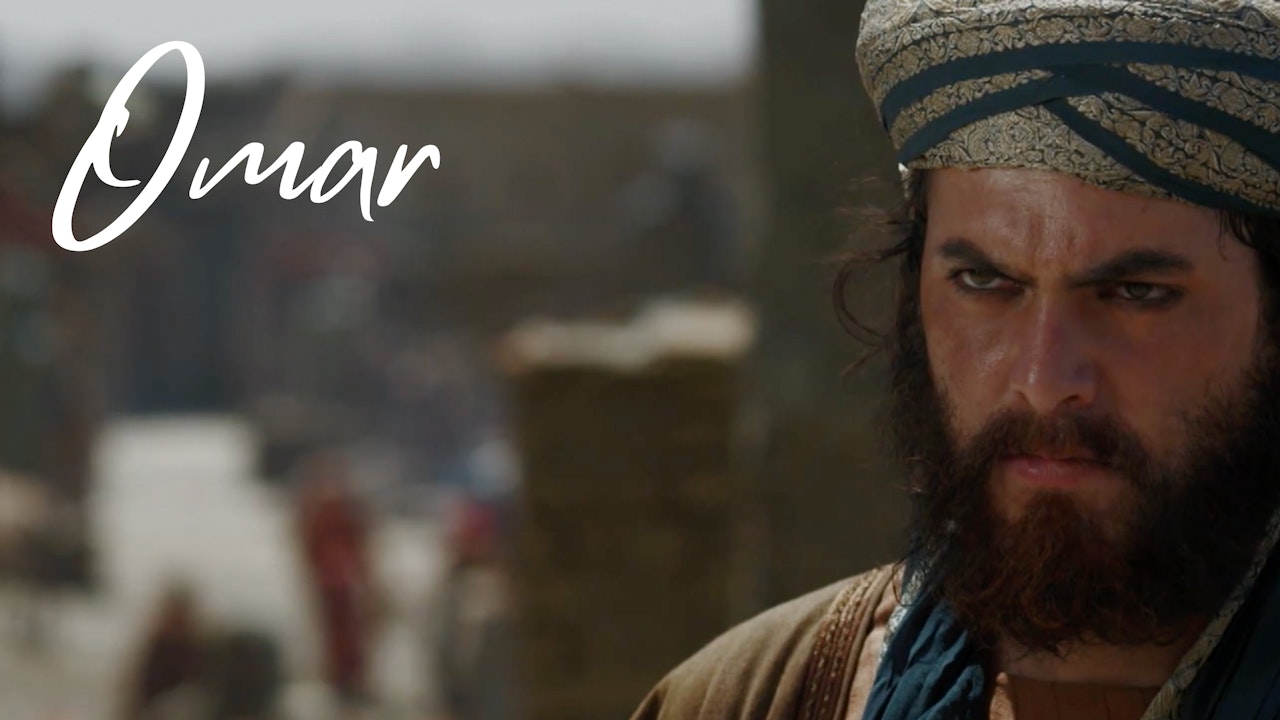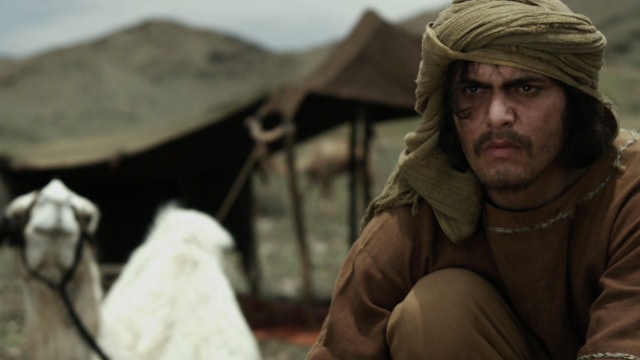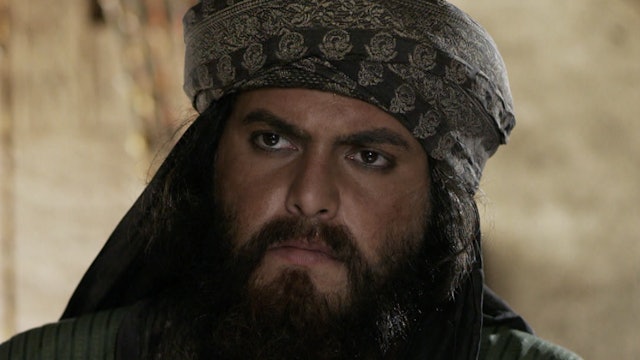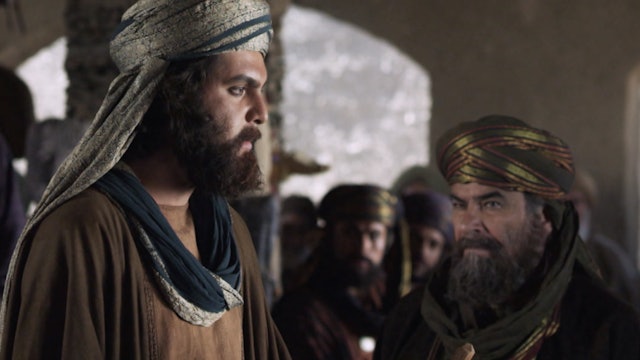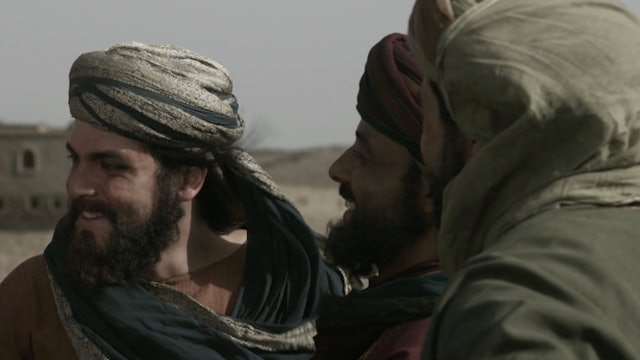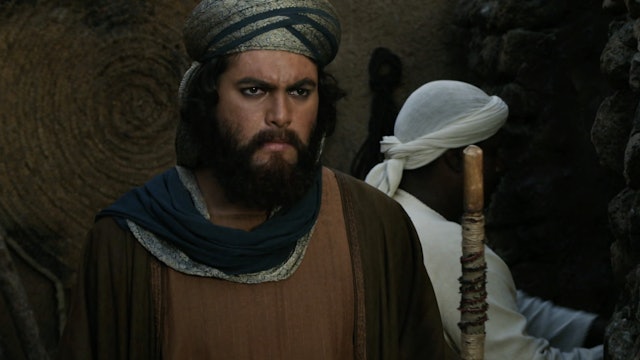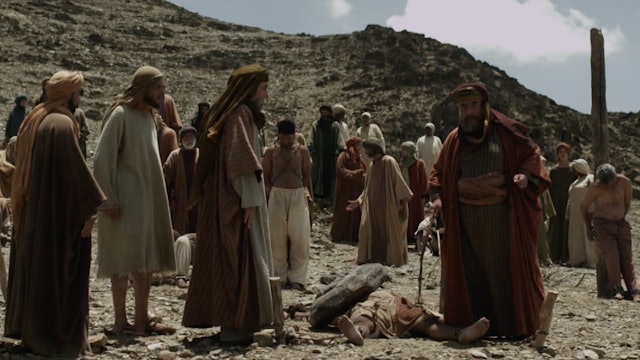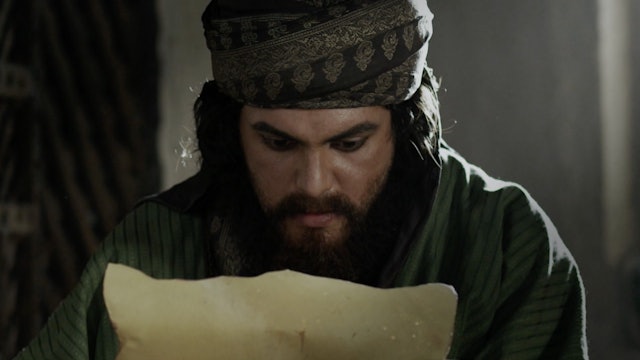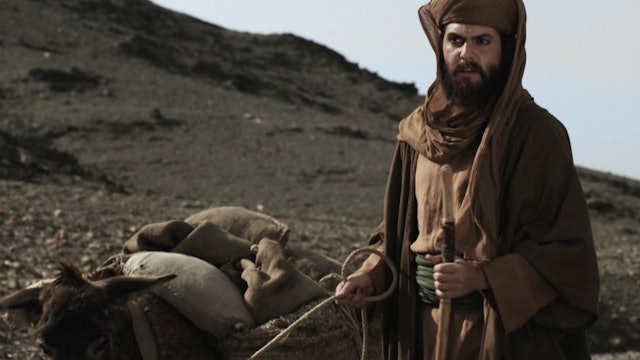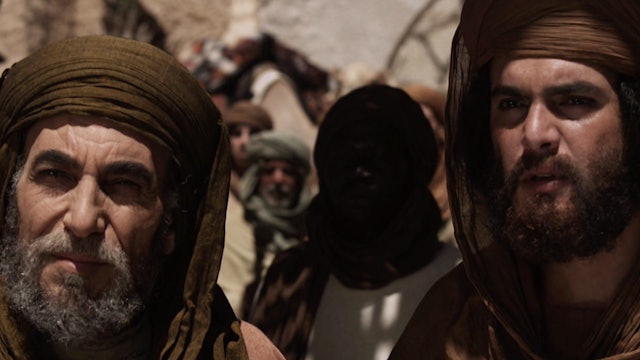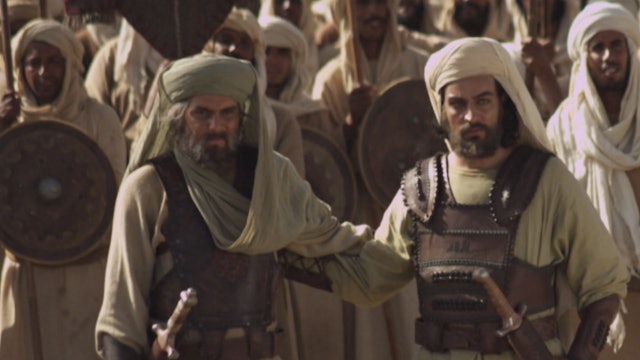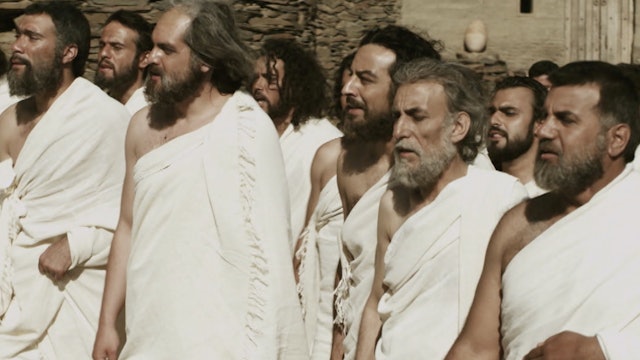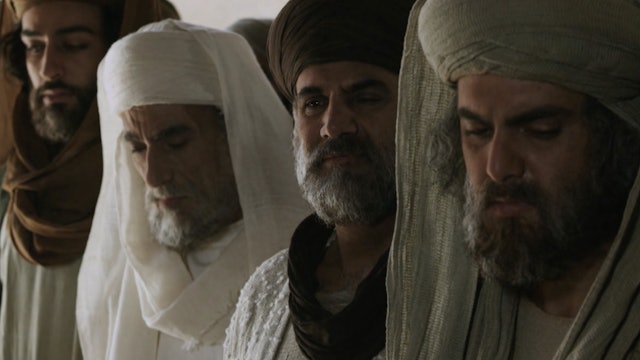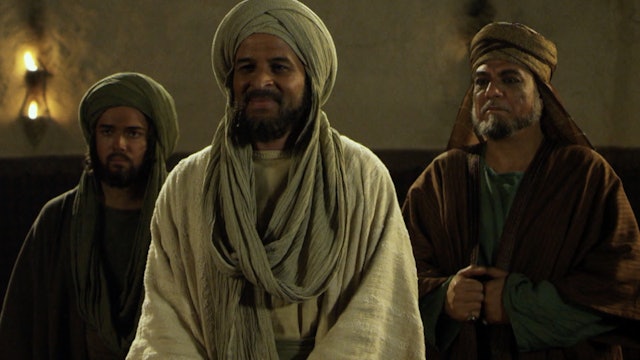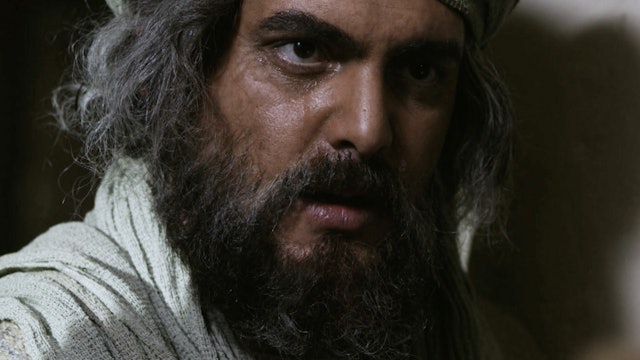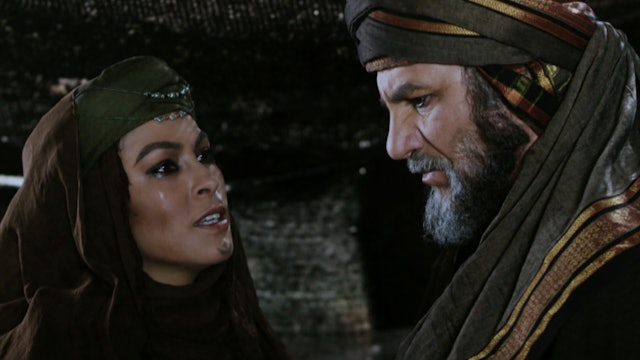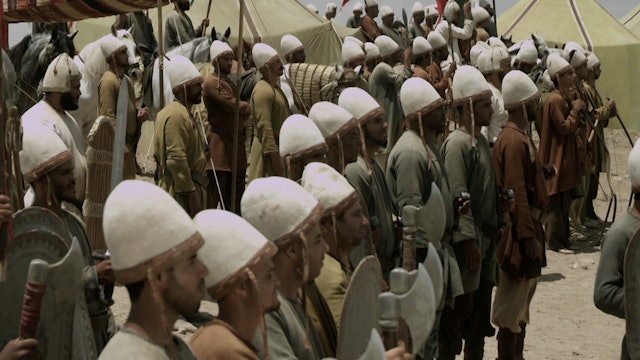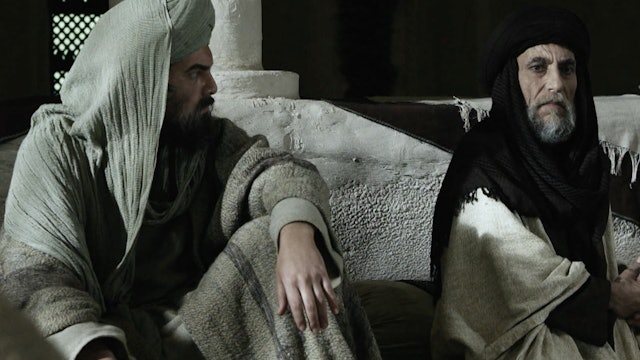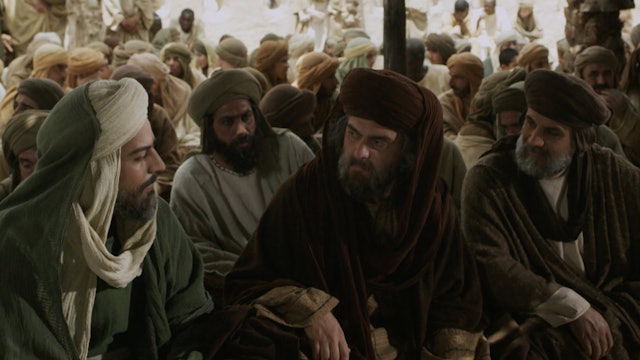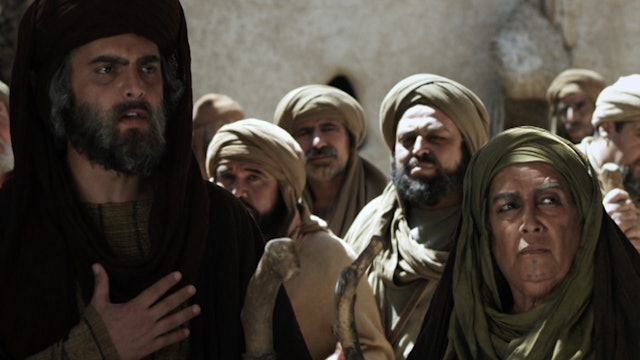-
Episode 1: Early Years
An elderly Omar رضي الله عنه returns to his homeland Makkah for Hajj, reminiscing on the life he lived and the events that would change his life forever.
-
Episode 2: Islam Begins
The message of Islam is proselytized by the Prophet ﷺ in secrecy in the earlier years of Prophethood. Murmurs of this new faith adopted by the downtrodden of Makkan society reach the ears of the Quraysh elite until its later made public.
-
Episode 3: Planning a Response
Elites among the tribes of Makkah consult and conspire on how to respond to the Prophet ﷺ's public declaration and invitation. The Prophet's uncle, Abu Lahab, is among his fiercest enemies.
-
Episode 4: Family Affairs
As Qurayshi tribesmen debate addressing and smearing the Prophet ﷺ, discord emerges among families and in broader society as the influence of his message grows.
-
Episode 5: Who Is Your Lord?
Tempers flare and violence escalates as Makkans persecute relatives and unprotected people who embrace Islam. Umayyah ibn Khalaf discovers Bilal ibn Rabah رضي الله عنه's secret.
-
Episode 6: Ahadun Ahad (He is One, He is One)
Abu Bakr رضي الله عنه advocates for the freedom of enslaved Muslims like Bilal ibn Rabah رضي الله عنه. Abu Jahl tortures vulnerable Muslim families like Yasser, Sumayyah, and Ammar رضي الله عنهم. Omar's friends confront him.
-
Episode 7: The First Hijrah
Persecution reaches unbearable lengths, and a group of Muslims seeks refuge in Abyssinia in King Najashi's kingdom. As frustrations in Makkah mount, so, too, does Omar's رضي الله عنه animus and frustration toward the Prophet ﷺ.
-
Episode 8: New Hope
Omar's رضي الله عنه enmity and anger with the Prophet ﷺ reaches a boiling point. The Muslims receive two major victories that give them newfound strength.
-
Episode 9: The Year of Sorrow
Amr ibn Al As lobbies Najashi to return the emigrated Muslims to Makkah. Abu Talib and the family of the Prophet ﷺ strategize to protect him. The Quraysh tighten their grip on the Muslims of Makkah with a pledge to boycott hung in the Ka'bah.
-
Episode 10: Madinah
Under threat of violence, the Muslims of Makkah must find safe passage to emigrate to Yathrib. A ransom is placed on Abu Bakr رضي الله عنه and the Prophet ﷺ to capture them on their path to the new city
-
Episode 11: The Battle of Badr
After years of oppression, the Muslims finally meet the Qurayshi army on the battlefield of Badr.
-
Episode 12: The Aftermath of Badr
Younger Makkans conspire revenge after their humiliating defeat in Badr. Muslims in Madinah deal with prisoners of war. Wahshi receives a chance at freedom.
-
Episode 13: The Battle of Uhud
Failing to heed military strategy proves costly for the Muslims as Makkans seek revenge in the Battle of Uhud. Despite earning his freedom, dissonance stirs Wahshi's heart. Salman رضي الله عنه, a companion from the distant lands of Persia, provides strategic insight on the eve of another battle.
-
Episode 14: The Battle of Khandaq
The Battle of Khandaq approaches and the Muslims must simultaneously confront the Makkan army and Jewish tribes of Madinah who've abandoned their oaths with the Prophet ﷺ from two different fronts. A treaty with the Makkans at Hudaybiyah tests the patience and mettle of the companions.
-
Episode 15: Labbayk
Stipulations agreed upon in the Treaty of Hudaybiyah begin to backfire for whoever remains among the polytheist Makkans. Delegations of representatives are sent to neighboring kingdoms and lands to spread the message of Islam. The Ummah goes toward Makkah to make Umrah with the Prophet ﷺ.
-
Episode 16: The Conquest of Makkah
The final remnants of polytheistic Makkah continue to wither as Khalid ibn Walid converts. The Muslims under the leadership of the Prophet ﷺ take control of Makkah in a peaceful conquest. Bilal ibn Rabah رضي الله عنه recites the adhan atop the Ka'bah.
-
Episode 17: The Passing of the Beloved ﷺ
Former foes find solace in the compassion of the Mercy to Mankind ﷺ. The Ummah suffers its greatest loss in the passing of God's final messenger ﷺ. Abu Bakr رضي الله عنه provides the Muslims with much needed wisdom in this time of heartache.
-
Episode 18: The Successor of the Prophet ﷺ
A new era begins after the passing of the beloved ﷺ. Abu Bakr رضي الله عنه becomes the first caliph of the Muslims. Abu Bakr رضي الله عنه sends an army led by the young Usamah ibn Zayd رضي الله عنه for a campaign. Suhail ibn Amr رضي الله عنه reminds the Makkans to stay firm.
-
Episode 19: Ridda Wars
Challenges emerge during Abu Bakr رضي الله عنه 's caliphate, notably in the form of deserters of the faith who see the passing of the Prophet ﷺ as an opportunity to return to pre-Islamic ignorance.
-
Episode 20: The Battle of Yamama
By deploying Khalid ibn Walid رضي الله عنه's army, Abu Bakr رضي الله عنه confronts Musaylimah the Liar, a man claiming prophecy after the Prophet ﷺ, in the Battle of Yamama.
-
Episode 21: Persia & Iraq
Wahshi has a chance at redemption. Abu Bakr and Umar رضي الله عنهم reflect on the preservation of the Qur'an as scholars of the holy book are martyred in battle. Khalid ibn Walid رضي الله عنه and the Muslim army confront the Persian Empire on the battlefields of Iraq.
-
Episode 22: The Passing of As-Siddiq
Abu Bakr رضي الله عنه and leadership devise a military strategy to fight the Byzantine Empire, a superpower of the world, in Syria. Abu Bakr رضي الله عنه's health diminishes, and Omar رضي الله عنه grapples with the weightiness of leadership when he is appointed the second caliph of the Muslims af...
-
Episode 23: The Battle of Yarmouk
Omar رضي الله عنه's rule as caliph begins with an adress to the Muslims in Madinah. Preparations are afoot to fortify Muslim armies for war against Theodore Trithyrius's Romans in the Battle of Yarmouk.
-
Episode 24: The Levant
Khalifa Omar رضي الله عنه strives to live an austere life as servant leader of the people. Led by Abu Ubaidah ibn Jarrah رضي الله عنه, the Muslim army strategizes and networks with Syrian Christians on how to conquer Damascus from the Byzantines. The Persians try to regroup after steadily losing ...
